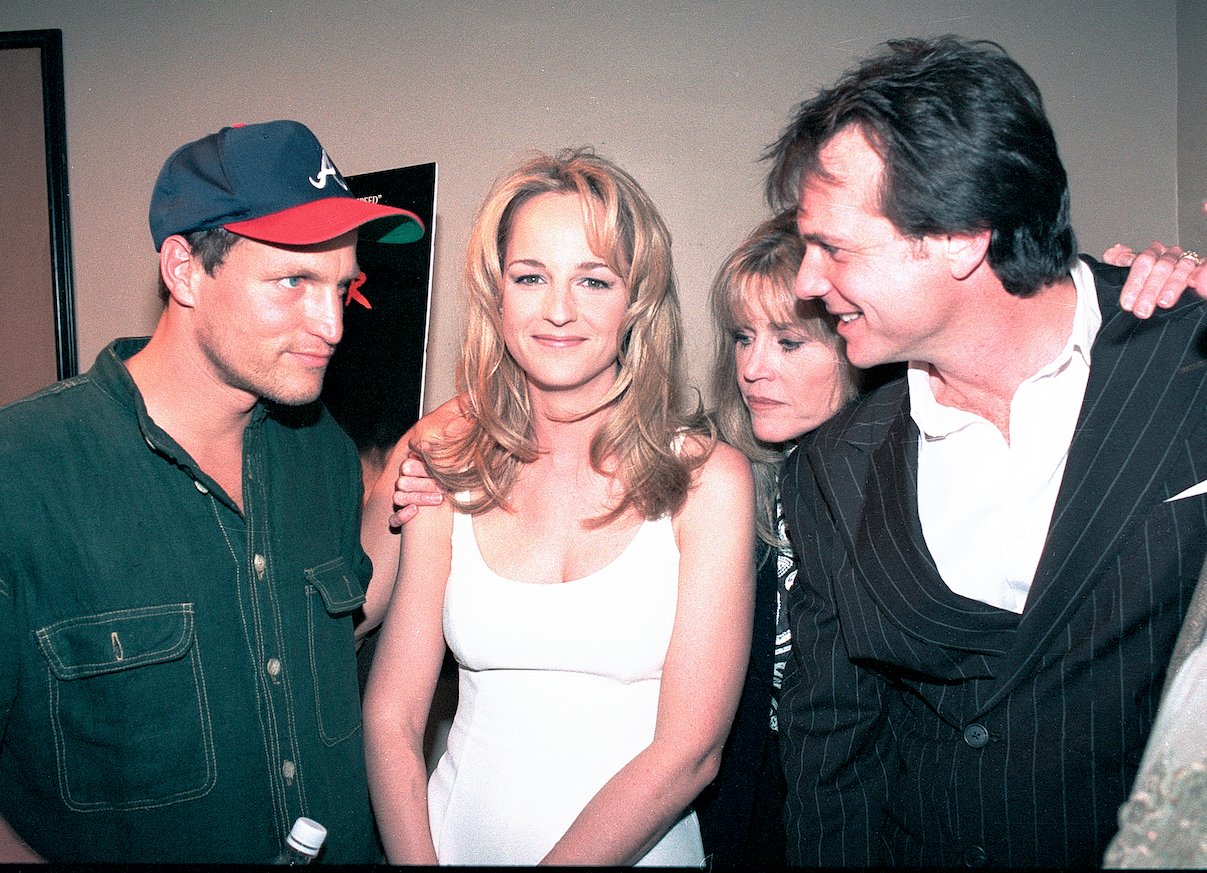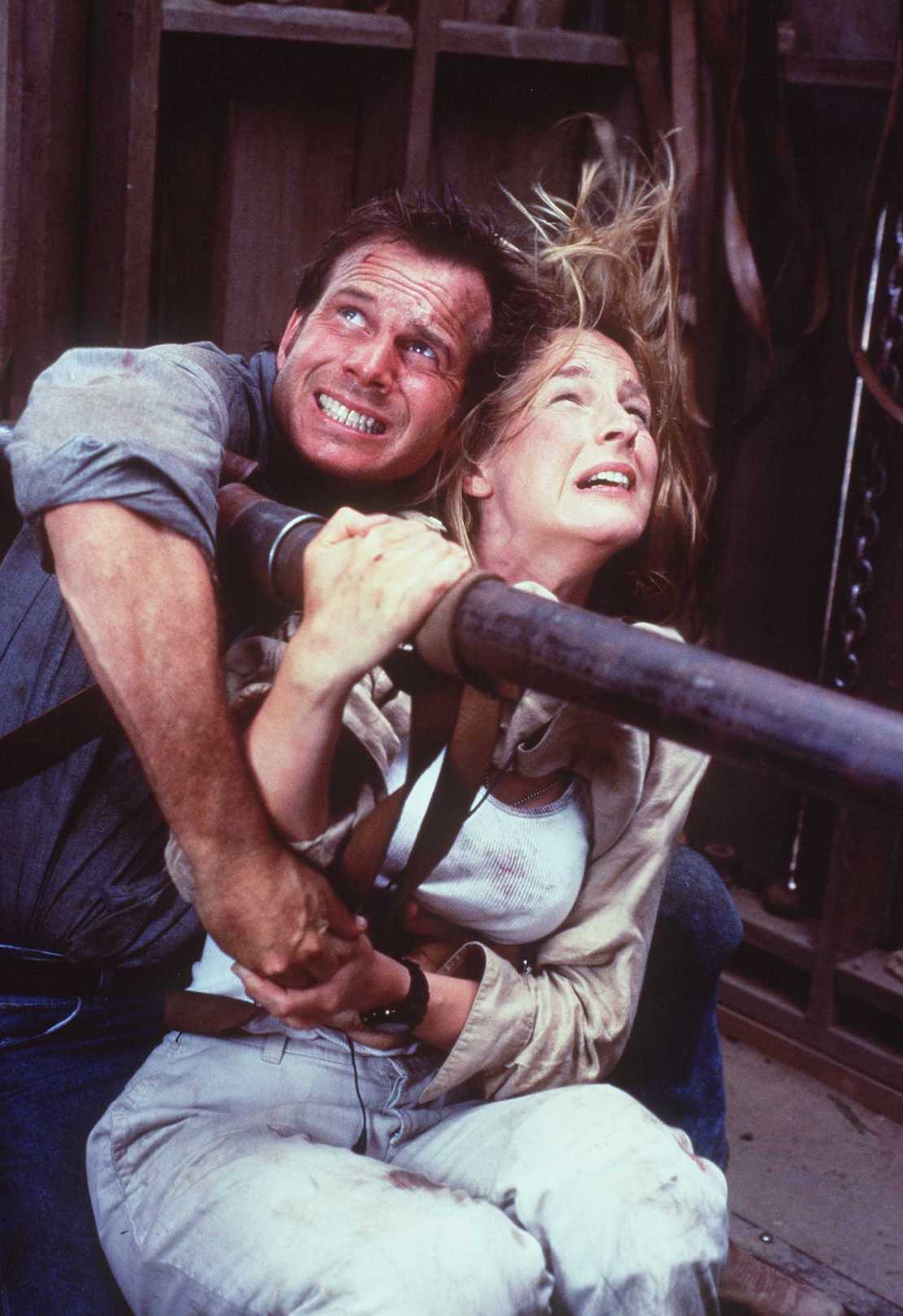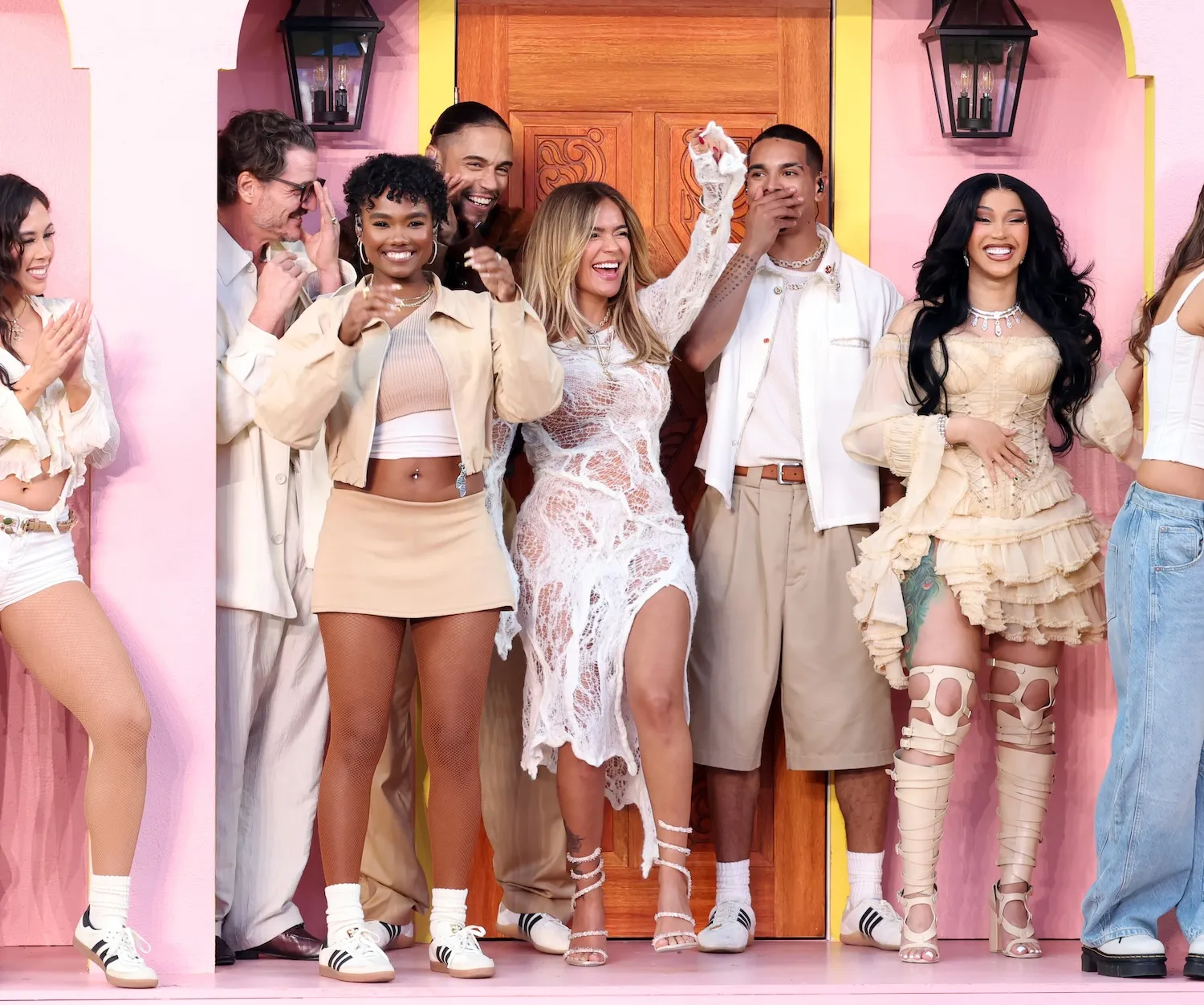‘Twister’ Star Helen Hunt Calls Being Temporarily Blinded During Filming ‘Not a Big Deal’
A blockbuster movie of the ‘90s, Twister wasn’t easy to film. Stars Helen Hunt and Bill Paxton endured all sorts of practical effects at the hands of director Jan de Bont. Pieces of ice were thrown at them and, at one point during filming, they both had temporary blindness thanks to some strong lights used on set. But, according to Hunt, losing her sight for a short time wasn’t “a big deal, ultimately.”
‘Twister’ filmed in Oklahoma during a ‘blue-sky tornado season’

Hunt spoke with Vulture about Twister in July 2020 where the Oscar-winning actor recalled what it was like filming the action movie. Primarily shot on location in Oklahoma, Hunt remembered the weather not cooperating.
“I think Jan, unfortunately, got saddled with the sunniest, most blue-sky tornado season in Oklahoma history,” she said. “I feel for him as a filmmaker because you fly all the way there with all of this equipment to capture the stormy skies and it’s, like, sunny and blue skies almost every day.”
Because the Oklahoma skies weren’t cloudy the director had to improvise.
‘Twister’ turned blue skies gray with special effects
Unable to shoot a film about tornados surrounded by blue skies, de Bont used lights to make some movie magic happen.
“He [de Bont] had all of these units out shooting stormy skies in other parts of the country, but in order to darken the sky behind us, he had to shine a ton of light on the actors,” Hunt said. He did that so “when he brought the image down, you could still see Bill and I on the truck,” she added.
Paxton and Hunt were on the receiving end of the lights filming various scenes. After a day of filming they both discovered problems with their vision.
Helen Hunt and Bill Paxton experienced temporary blindness because of the lights
Recalling the lights, Hunt said it was a struggle to get through the scenes.
“I remember these four 16k bulbs — 16,0000 [sic] watts of light — strapped to the back of the camera truck, shooting us,” she said. “And I have very squinty, sensitive eyes anyway. And I remember going, ‘I can barely keep my eyes open!’”
“We were there all day shooting the scene, and the next day, Bill came into the makeup trailer and said, ‘Can you see?’ And I said, ‘Not really,’” Hunt recalled. “It was super-weird. But it was not a big deal, ultimately. We put on some dark glasses and we walked around like the mice in Cinderella for a while.”

“I was very relieved that Bill was the one who came forward and said, ‘I might be going crazy, but I don’t think I can see,’” she added. “But it went away. I guess they fry your corneas off and then they grow back.”
Around the time of the movie’s release in 1996, Paxton explained the incident to Entertainment Weekly.
“The room was there, but at the same time it wasn’t there … Those lights, they were like sun balls,” he said. “They had to pump light into the cab to get exposure down, to make the sky behind us look dark, stormy. Because it was too bright outside. And these things literally sunburned our eyeballs. I got back to my room, I couldn’t see.”
‘Twister’ went on to become a success
Released in theaters on May 10, 1996, Twister earned $41 million opening weekend, according to Box Office Mojo. It became an international blockbuster, making almost $500 million worldwide. It even beat out Mission: Impossible for the number two spot behind Independence Day.


